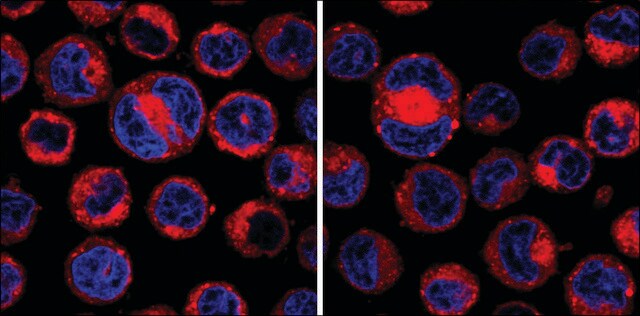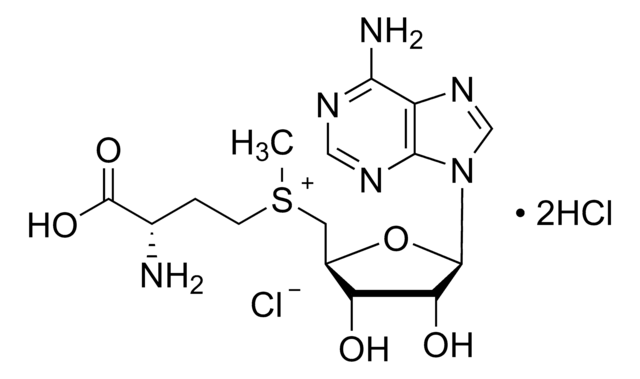Kluczowe dokumenty
A7154
Adenosine, periodate oxidized
≥93%
Synonim(y):
ADOX, Adenosine-2′,3′-dialdehyde
About This Item
Polecane produkty
pochodzenie biologiczne
synthetic (organic)
Poziom jakości
Próba
≥93%
Postać
powder
rozpuszczalność
0.2 M HCl: 50 mg/mL, clear, colorless to faintly yellow
temp. przechowywania
−20°C
ciąg SMILES
Nc1ncnc2n(cnc12)C(OC(CO)C=O)C=O
InChI
1S/C10H11N5O4/c11-9-8-10(13-4-12-9)15(5-14-8)7(3-18)19-6(1-16)2-17/h1,3-7,17H,2H2,(H2,11,12,13)
Klucz InChI
ILMNSCQOSGKTNZ-UHFFFAOYSA-N
Zastosowanie
- as a methylarginine transferase inhibitor in the human embryonic kidney (HEK)-293 T cells
- as a methylase inhibitor in H4 neuroglioma
- as a broad inhibitor of S-adenosylmethionine (AdoMet)-dependent methyltransferases in mouse embryo fibroblast NIH3T3 cells
Działania biochem./fizjol.
Kod klasy składowania
11 - Combustible Solids
Klasa zagrożenia wodnego (WGK)
WGK 3
Temperatura zapłonu (°F)
Not applicable
Temperatura zapłonu (°C)
Not applicable
Środki ochrony indywidualnej
Eyeshields, Faceshields, Gloves, type N95 (US)
Certyfikaty analizy (CoA)
Poszukaj Certyfikaty analizy (CoA), wpisując numer partii/serii produktów. Numery serii i partii można znaleźć na etykiecie produktu po słowach „seria” lub „partia”.
Masz już ten produkt?
Dokumenty związane z niedawno zakupionymi produktami zostały zamieszczone w Bibliotece dokumentów.
Klienci oglądali również te produkty
Nasz zespół naukowców ma doświadczenie we wszystkich obszarach badań, w tym w naukach przyrodniczych, materiałoznawstwie, syntezie chemicznej, chromatografii, analityce i wielu innych dziedzinach.
Skontaktuj się z zespołem ds. pomocy technicznej
